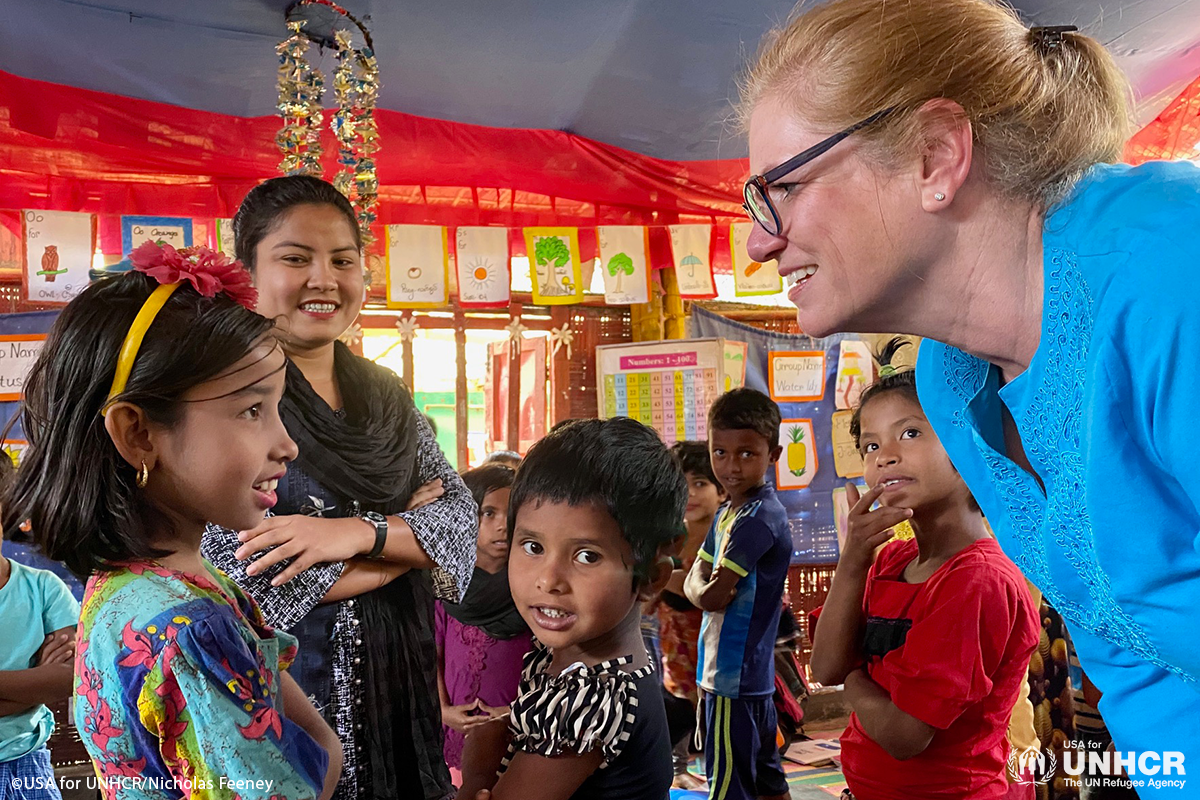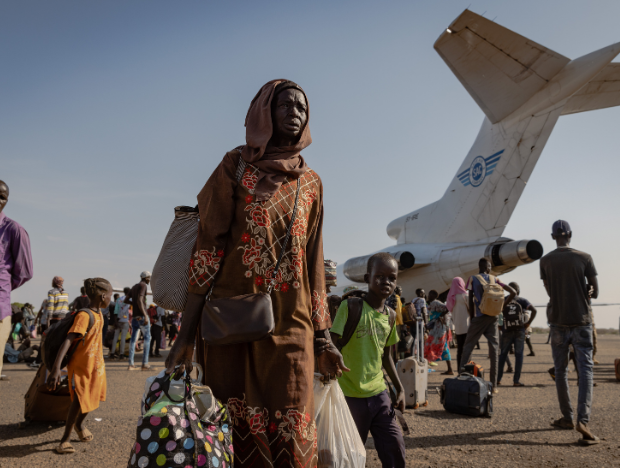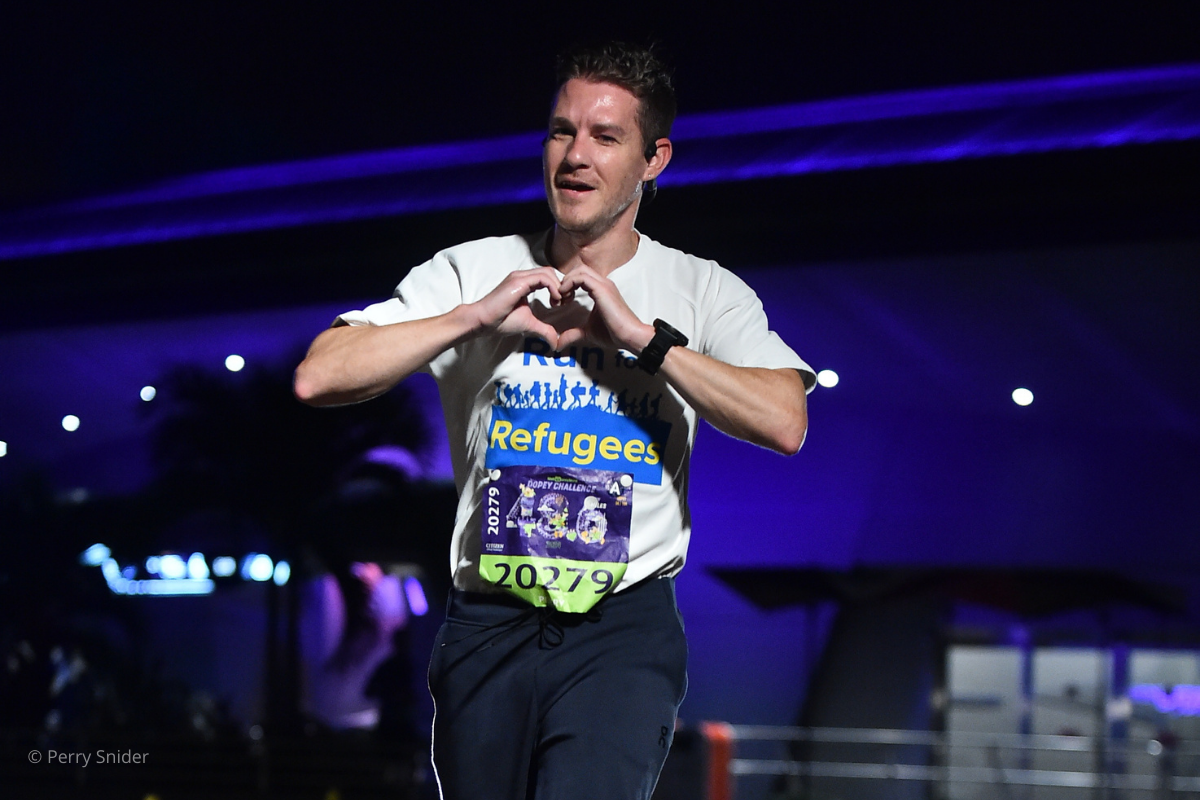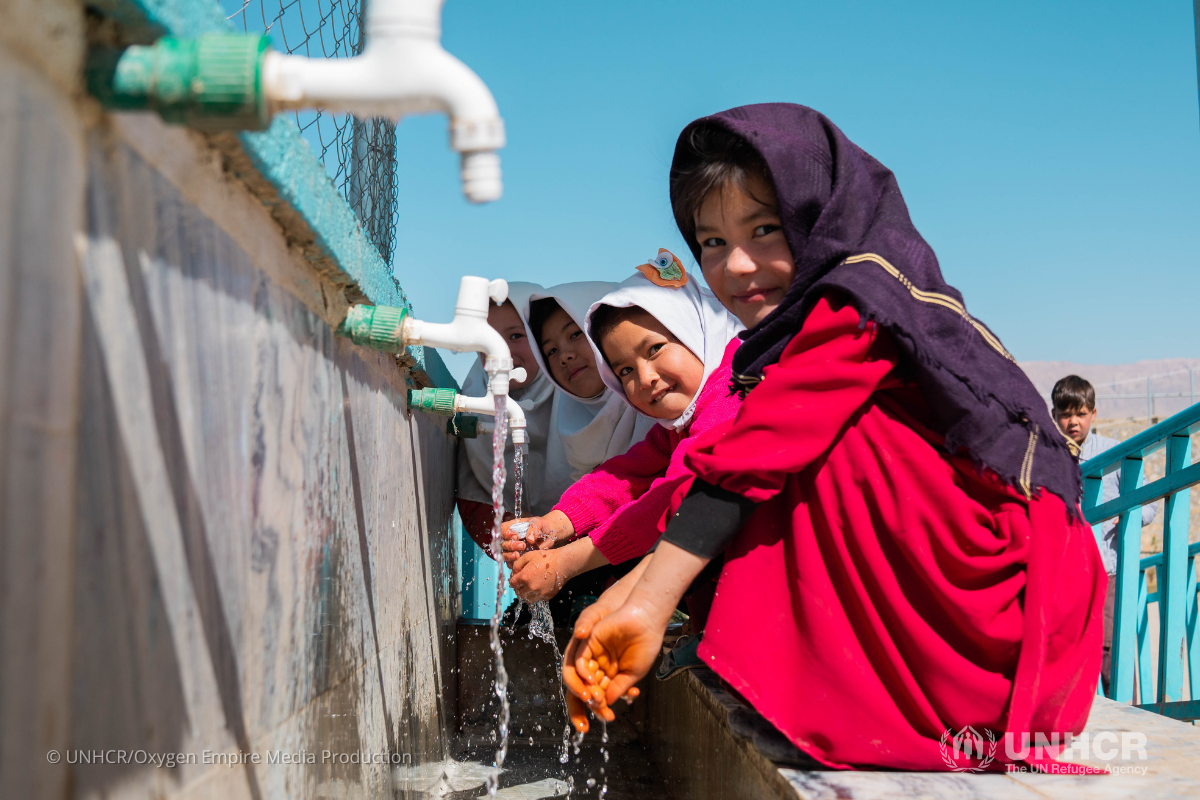A Global Health Crisis Demands a Global Response
Just like you and millions of other Americans, I'm at home today. And like you, I am practicing social distancing, washing my hands more than I ever imagined.
This is an unprecedented time for all of us. We are worried about our personal health and the health and safety of our families, our staff and our supporters. I do hope you are healthy and finding ways to cope in this period of self-isolation. I can’t imagine any of us thought we would be where we are today, navigating isolation in a truly global health crisis for goodness knows how long.
My heart goes out to those who have contracted the virus and lost family and friends. Yet I take heart in the dedication of our healthcare workers and those serving our community in this crisis.
I am comforted by the idea that we are all in this together.
The only way we can protect ourselves and our communities from this virus is to work together to slow this virus down. We must ensure that refugee communities around the world are also included in our prevention and protection plans. This means we must look beyond our country and ensure that we maintain our commitment to refugee communities around the world.
I want to thank our supporters for being part of our team supporting refugees in times of crisis and for bringing hope to very vulnerable families. For showing compassion and kindness, providing shelter, helping with daily living expenses and providing vital services, including education and healthcare.
The next few months will be especially dangerous for refugee families around the world. Eighty percent of refugees live in developing countries with fragile healthcare systems. Refugee camps and urban slums are crowded. In most refugee situations, social distancing is impossible for refugees. COVID-19 will wreak havoc on refugees.

Just six weeks ago, I had the opportunity to meet with several refugee community healthcare workers. I traveled to the world's largest refugee camp, Kutupalong, near Cox's Bazar, Bangladesh, in late February to see how the generous donations from Americans are being used by UNHCR. The COVID-19 virus was already evident in Asia, and had started to surge in Iran and Italy. Even at that early stage, it was clear that a global health crisis was upon us.
Kutupalong is unique. In the months following the outbreak of violence against the Rohingya in Myanmar, it quickly became a very dense "city" of close to a million people — about the same population as Seattle, Denver or Washington, D.C.
Kutupalong is built on unstable land, prone to floods and landslides. On a good day, it's a very tough place to live. But we are making it a better place, and let me tell you how.
Donor support has helped:
- Build the largest waste treatment facility ever constructed for a refugee camp. Clean, safe water is supplied through 14 chlorinated water networks and close to 679 tube wells.
- Provide health education training for almost 700 refugee volunteers and community health workers. These healthcare volunteers, mostly women, are the backbone of their communities, serving both as health educators and frontline healthcare workers. These women are awe inspiring and take such pride in their work and those they serve.
- Ensure that refugee families are living in improved shelters.
- Provide access to early childhood and primary education programs for Rohingya children. For many, this is their first opportunity to learn in their mother tongue.
These are stunning achievements! Since 2017, when large numbers of Rohingya refugees began to arrive in Bangladesh, the mortality rate declined by 70 percent.
But that could change in a heartbeat.
All that progress could be erased when COVID-19 hits Kutupalong. Together, with the community health workers, we are rolling out our community handwashing programs and ramping up soap distribution. We are building isolation facilities in health clinics and working closely with the government of Bangladesh to ensure refugee populations are part of their COVID-19 plans.
Together we can ensure that refugee families in Cox’s Bazar and around the world are protected and prepared for this virus.
I want to let you know that we stand with you in this COVID- 19 crisis. We can only address COVID-19 by working together to ensure everyone, including refugees, is included in our efforts to prevent the spread of the virus.
Please take care of yourself and your family. Know that you are in our hearts and thoughts at this very challenging time. Your friendship and kindness have never been more welcome.
Anne-Marie Grey is the Executive Director and CEO of USA for UNHCR, a 501(c)(3) non-profit organization dedicated to protecting refugees and empowering them with hope and opportunity.


